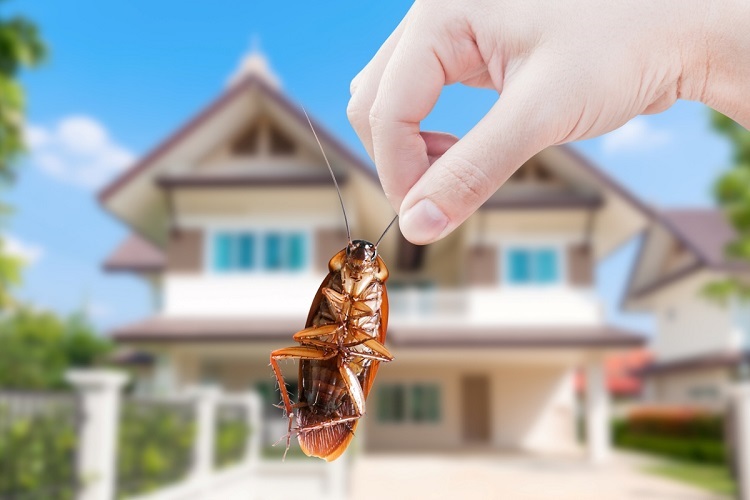Home Improvement
Effective Mosquito and Tick Control: The Ultimate Guide to Keeping Your Property Pest-Free

Key Takeaways:
- Mosquitoes transmit diseases like malaria, dengue fever, Zika virus, and West Nile virus
- Tick bites can lead to Lyme disease, babesiosis, and Rocky Mountain spotted fever
- Eliminating standing water is crucial for effective mosquito control
- Natural repellents like citronella and lavender can help repel mosquitoes
- Regular lawn maintenance can reduce mosquito presence
- Designing tick-proof landscapes and using tick-repelling plants can prevent ticks
- Pet tick prevention measures are essential for protecting pets from tick bites
- Integrated Pest Management (IPM) is an effective and environmentally conscious approach to pest control
- Hiring certified pest control companies can address severe infestations
- Ongoing pest maintenance programs provide continued protection against pests
Understanding the Impact of Mosquito and Tick Infestations
Mosquitoes and ticks may be small creatures, but they can have a significant impact on our health and well-being. Understanding the dangers they pose is crucial for effective control and prevention. Mosquitoes, for instance, are notorious for transmitting various diseases, including malaria, dengue fever, Zika virus, and West Nile virus. These diseases can cause severe illness and, in some cases, be fatal. Therefore, it is essential to take proactive measures to protect ourselves and our properties from mosquito infestations.
The Dangers of Mosquito-Borne Diseases
Mosquito-borne diseases have been a longstanding threat to public health. Malaria, one of the most well-known mosquito-borne illnesses, affects millions of people worldwide each year. It causes symptoms such as fever, headache, and fatigue and, if not promptly treated, can result in life-threatening complications. Other diseases, like dengue fever and Zika virus, have gained attention in recent years due to their potential to cause epidemics. These diseases can lead to birth defects, neurological disorders, and other severe health issues.
The Health Risks Associated with Tick Bites
Tick bites also pose significant health risks to humans and animals. Ticks are known carriers of various diseases, such as Lyme disease, babesiosis, and Rocky Mountain spotted fever. Lyme disease, in particular, is a cause for concern as it can lead to long-term complications if not diagnosed and treated early. Symptoms may include fatigue, joint pain, and neurological problems. It is crucial to be vigilant and take preventive measures to reduce the risk of tick bites and the potential transmission of diseases.
Tips for Effective Mosquito Control
An integral part of mosquito control is eliminating their breeding grounds. Mosquitoes lay their eggs in stagnant water, so addressing any standing water sources around your property is vital. Emptying containers, cleaning gutters, and ensuring proper drainage can significantly reduce the mosquito population. Additionally, consider using natural repellents or physical barriers to protect yourself from mosquito bites without resorting to chemical-based products.
Eliminating Standing Water: A Key Strategy
Standing water is a breeding ground for mosquitoes, and by removing these habitats, you can effectively control their population. Be diligent in checking your property for any potential water sources, such as uncovered containers, flowerpot saucers, and rainwater catchment systems. Regularly empty and clean these areas to prevent mosquito eggs from hatching. Likewise, pay attention to areas with poor drainage and ensure water flows freely to prevent the accumulation of stagnant water.
Natural Repellents: Safe Alternatives to Chemicals
If you are looking for safer alternatives to chemical-based mosquito repellents, consider using natural repellents. Essential oils derived from plants like citronella, eucalyptus, and lavender have shown repellent properties against mosquitoes. These natural repellents can be applied topically or used in diffusers or candles to create a mosquito-free environment. However, it’s important to note that natural repellents may not provide the same long-lasting protection as chemical repellents and may need to be reapplied more frequently.
The Importance of Regular Lawn Maintenance
Maintaining a well-groomed lawn can also contribute to mosquito control. Mosquitoes seek shelter in tall grass and vegetation, so keeping your lawn trimmed and well-maintained can reduce their hiding spots. Additionally, consider planting mosquito-repellent plants, such as citronella, catnip, and marigolds, to create natural barriers against mosquitoes. By incorporating these practices into your lawn care routine, you can minimize the presence of mosquitoes in your outdoor space.
Tactics for Tick Prevention and Control
Tick prevention requires a comprehensive approach to safeguard yourself, your pets, and your property. By creating tick-proof landscapes, utilizing tick-repelling plants, and implementing pet tick prevention measures, you can significantly reduce the risk of tick encounters and tick-borne illnesses.
Creating Tick-Proof Landscapes
Designing your landscape in a way that discourages tick presence is a wise strategy for tick control. Consider keeping recreational areas, such as playgrounds and seating areas, away from densely wooded or brushy areas where ticks thrive. Creating barriers like gravel or wood chips can help prevent ticks from easily entering these spaces. Regularly mowing the grass, removing leaf litter, and pruning overgrown shrubs can also minimize tick habitat and make your yard less appealing to these pests.
Tick-Repelling Plants: Nature’s Defense
Incorporating tick-repelling plants into your landscape can provide an additional layer of defense against ticks. Plants such as rosemary, lavender, and garlic emit fragrances that repel ticks. By strategically placing these plants near outdoor gathering areas or along the edges of your property, you can help deter ticks from entering your yard. However, it’s important to note that while these plants may have repellent properties, they may not offer complete protection and should be used in combination with other preventive measures.
Implementing Pet Tick Prevention Measures
Pets are susceptible to tick bites and can bring ticks into your home. Maintaining regular veterinary care, using tick prevention products specifically formulated for pets, and conducting thorough tick checks after outdoor activities are all essential measures for protecting your furry friends. Consult with your veterinarian to determine the most appropriate tick prevention products for your pets, as different options are available, including topical treatments, oral medications, and tick repellent collars.
Professional Pest Control Solutions
While there are numerous preventive measures you can take on your own, sometimes professional intervention is necessary to address severe infestations and provide long-term pest control solutions. Understanding integrated pest management, hiring a certified pest control company, and considering ongoing pest maintenance programs can all contribute to a pest-free environment.
Understanding Integrated Pest Management
Integrated Pest Management (IPM) is an effective and environmentally conscious approach to pest control. It involves strategies that focus on long-term prevention, monitoring, and targeted treatment. IPM emphasizes non-chemical measures, such as habitat modification and biological control, while minimizing the use of pesticides. By implementing IPM principles, you can address pest issues holistically and minimize the impact on the environment.
Hiring a Certified Pest Control Company
When faced with persistent mosquito or tick problems, seeking professional mosquito and tick service is a wise decision. Pest control specialists have the expertise, knowledge, and access to specialized equipment that can effectively eliminate pests and reduce the risk of infestations. Before hiring a company, ensure that they are licensed, insured, and experienced in handling mosquito and tick control. Requesting recommendations or reading reviews from previous customers can also help ensure you choose a reputable company.
The Benefits of Ongoing Pest Maintenance Programs
Ongoing pest maintenance programs provide continued protection against mosquitoes, ticks, and other pests. These programs often include regular inspections, treatments, and preventative measures to ensure your property remains pest-free throughout the year. By enrolling in a maintenance program, you can enjoy the peace of mind that comes from knowing your home and outdoor spaces are being monitored and treated regularly by professionals.
FAQ
Question: What are some diseases transmitted by mosquitoes? – Mosquitoes can transmit diseases such as malaria, dengue fever, Zika virus, and West Nile virus.
Question: What diseases can tick bites lead to? – Tick bites can lead to Lyme disease, babesiosis, and Rocky Mountain spotted fever.
Question: What is a crucial step in effective mosquito control? – Eliminating standing water is crucial for effective mosquito control.
Question: Are natural repellents effective in repelling mosquitoes? – Natural repellents like citronella and lavender can help repel mosquitoes.
Question: How can regular lawn maintenance reduce mosquito presence? – Regular lawn maintenance, such as trimming grass and removing tall vegetation, can reduce mosquito presence.
Question: How can tick encounters and tick-borne illnesses be reduced? – Creating tick-proof landscapes, utilizing tick-repelling plants, and implementing pet tick prevention measures can significantly reduce tick encounters and tick-borne illnesses.
Question: What is Integrated Pest Management (IPM)? – Integrated Pest Management (IPM) is an effective and environmentally conscious approach to pest control that focuses on long-term prevention, monitoring, and targeted treatment.
Question: When should a certified pest control company be hired? – A certified pest control company should be hired when faced with persistent mosquito or tick problems that cannot be effectively controlled with DIY methods.















You must be logged in to post a comment Login